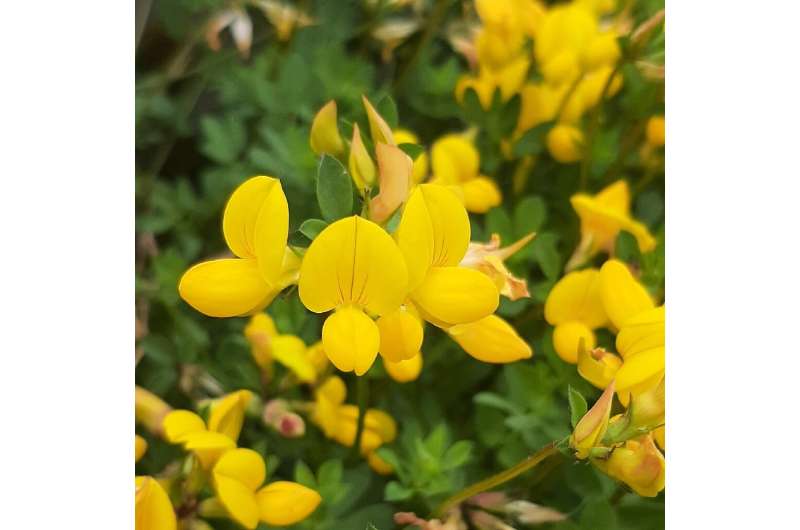
A trio of botanists, two from the University of Galway's School of Natural Science and the third from the University of Leeds' School of Geography, has found via testing that most smartphone apps that identify plants are inaccurate. In their study, reported in PLOS ONE, Neil Campbell, Karen Bacon and Julie Peacock downloaded and tested six of the most common plant-identifying apps.
As the researchers note, there are many smartphone apps available that claim to identify plants. But as with other apps, little is done by independent groups to verify their accuracy. In this new effort, the group has chosen to take on that role. To that end, they downloaded the apps; Leaf Snap, Pl@ntNet, Seek, Plant Snap, iNaturalist and Google Lens.
They used the apps to identify 38 plants growing in their natural environment at four unique sites in Ireland. They note that all of the apps are based on deep-learning technology and have been trained using images posted on the internet. This, they further note, leads to errors because so many images of plants on the internet are mislabeled.
The research team assessed and scored the accuracy of the results for each app. They noted that there were large differences in accuracy between the apps and variation across species. They also found that most of the apps did better when asked to identify plants by their flowers than by their leaves. They found that overall Pl@ntNet and Leaf Snap did the best job of identifying plants, but neither had an accuracy above 90%. They note also that some of the other apps scored as low as 4% on some tasks.
The team concludes that none of the apps are good enough to use as a field guide for people foraging for food in the wild, nor are they good enough for use by environmentalists or farmers to determine which plants to protect and which to eradicate. Instead, they suggest, they can be used by hobbyists hoping to learn more about their local environment.
More information: Neil Campbell et al, A repeatable scoring system for assessing Smartphone applications ability to identify herbaceous plants, PLOS ONE (2023). DOI: 10.1371/journal.pone.0283386
© 2023 Science X Network
Citation: Testing of smartphone apps that identify plants shows most are not very good (2023, April 6) retrieved 6 April 2023 from https://ift.tt/MuiSbTQ
This document is subject to copyright. Apart from any fair dealing for the purpose of private study or research, no part may be reproduced without the written permission. The content is provided for information purposes only.
"Smartphone" - Google News
April 06, 2023 at 09:37PM
https://ift.tt/RHC103l
Testing of smartphone apps that identify plants shows most are not very good - Phys.org
"Smartphone" - Google News
https://ift.tt/SV2s8oB
https://ift.tt/bH62EYz
Bagikan Berita Ini














0 Response to "Testing of smartphone apps that identify plants shows most are not very good - Phys.org"
Post a Comment